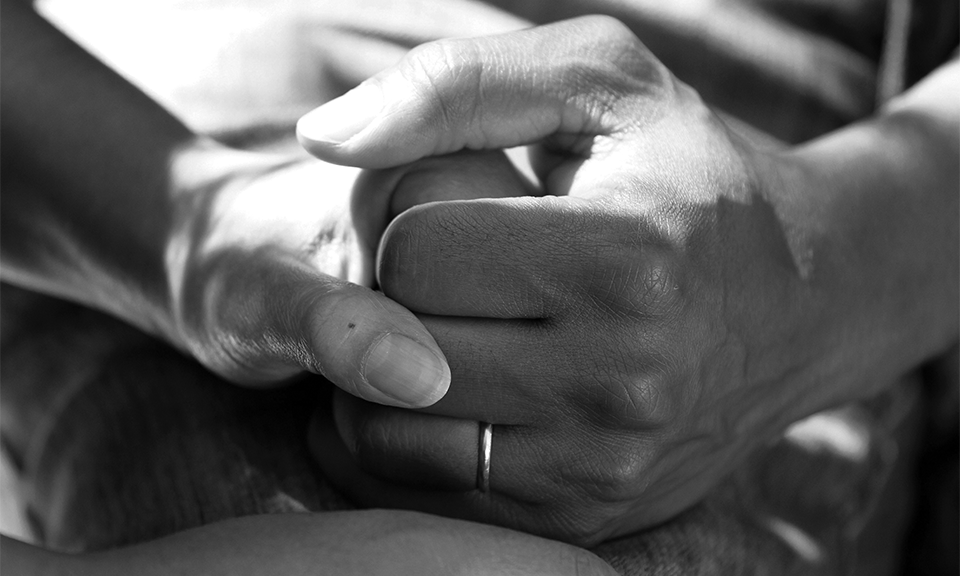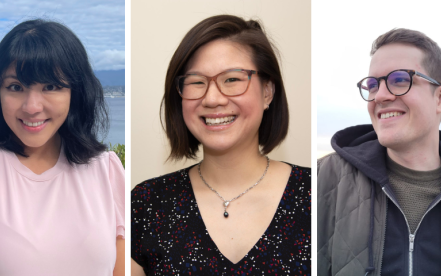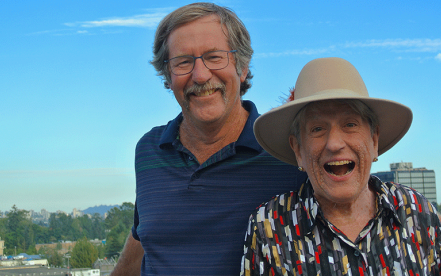Transforming the future of cancer

How can we enhance support for cancer survivors and caregivers? For more than two decades, Dr. Stuart Peacock, a distinguished scientist and SFU health sciences professor, has focused his research on developing more effective cancer services, making health system funding decisions fairer and more transparent, and improving the quality of life of cancer patients and survivors.
In 2015, Stuart began serving as the inaugural holder of the Leslie Diamond Chair in Cancer Survivorship—a position that was brought to life with the remarkable generosity of philanthropists Leslie and Gordon Diamond. The gift was made in honour of Leslie’s 70th birthday and nearly 30 healthy and memory-filled years post-breast cancer, with the aim of providing that hope for others impacted by cancer.
“I am humbled to have this opportunity to propel innovative, world-class research to improve the well-being of cancer survivors and their families,” says Stuart.
“As the Leslie Diamond Chair in Cancer Survivorship, my goal is to lead research that will help develop better access to more effective cancer services, so that British Columbians who have had a cancer diagnosis can continue to thrive and enjoy their healthiest lives possible.”
Under Stuart’s leadership, the SFU and BC Cancer research team has grown rapidly and now boasts more than 15 staff making strides in various areas of cancer survivorship.
Notably, they have developed and launched several programs dedicated to understanding the needs of young survivors. Their Childhood, Adolescent and Young Adult Cancer Survivors program—which includes 50 years of cancer treatment and health service data for all British Columbians up to 39-years-old who were diagnosed between 1970 to 2020—has been used to predict things like long-term survival, incidence and prevalence of second cancers, and educational and employment outcomes.
The team has also used patient co-design principles and survivor lived experiences to help develop new models for Adolescent and Young Adult (AYA) survivorship care, particularly for youth who face additional challenges as members of the lesbian, gay, bisexual and queer community.
Recently, the team completed a world-first study to understand how different types of cancer affect survivors’ income and employment over time. One of their key findings was that an individual’s income is significantly and negatively impacted within the first few years following a cancer diagnosis, especially for female breast cancer patients. Systemic income inequalities with women’s roles in the workplace are important factors to consider when it comes to reintegrating women into the workforce after a cancer diagnosis, says Stuart.
Strong efforts have also been made to advance interventions that reduce anxiety and enhance quality of life, including a physical activity self-management program for prostate cancer survivors and their caregivers; a study on Canadian cancer survivors and their perspectives on cannabis to alleviate cancer symptoms; and research findings that will be used to directly enhance virtual care for all cancer patients across the province.
In the coming years, Stuart and his team will focus on bolstering research and trainee capacity in cancer survivorship, as well as building on their extensive Canadian and international partnerships.
“Cancer survivors are a distinct population with specific and ongoing needs. We hope that our work will result in a brighter future for the growing number of cancer survivors.” - Dr. Stuart Peacock
This story is part of our winter 2023 edition of Engage, our magazine celebrating the impact of SFU’s donor community.
To read more stories, please visit the Engage landing page.


